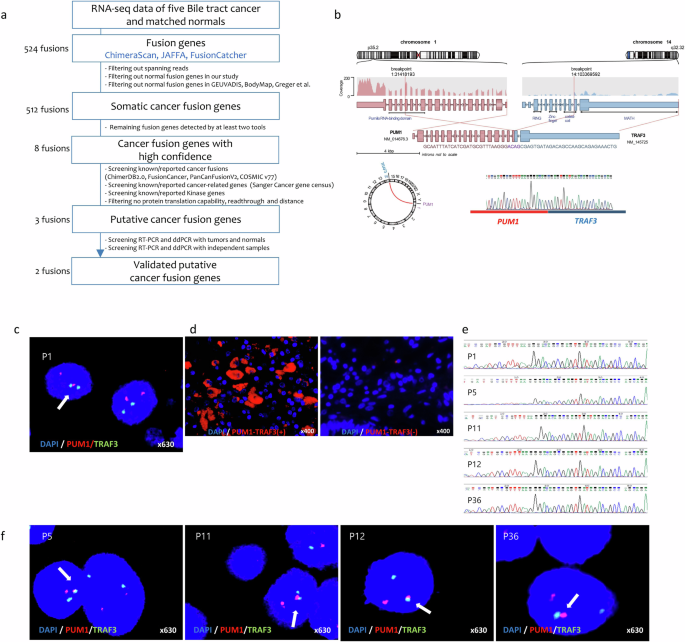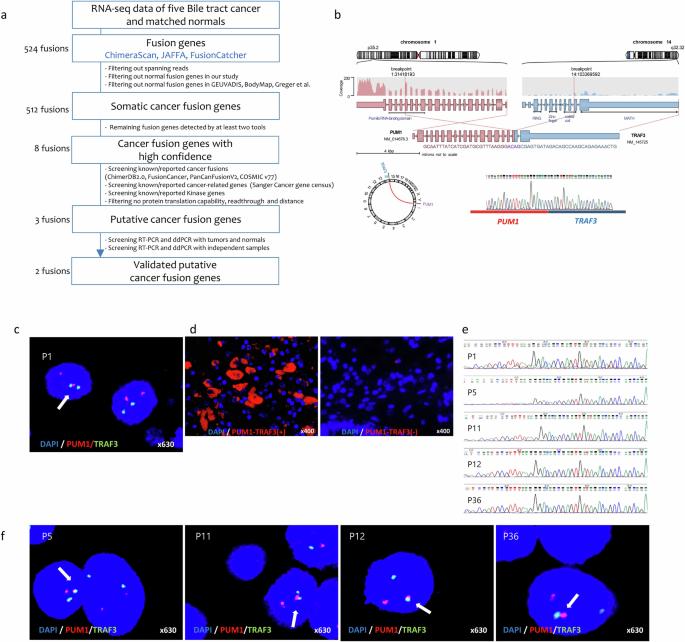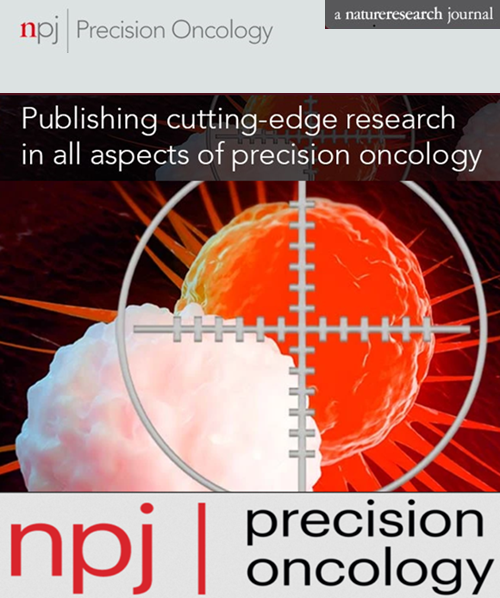PUM1-TRAF3 fusion protein activates non-canonical NF-κB signaling via rescued NIK in biliary tract cancer
IF 6.8
1区 医学
Q1 ONCOLOGY
引用次数: 0
Abstract
Discovery and verification of diagnostic or therapeutic biomarkers for biliary tract cancer (BTC) is challenging owing to the low prevalence of the disease. Here, we identified and investigated the clinical impact of a fusion gene, Pumilio1-tumor necrosis factor receptor-associated factor 3 (PUM1-TRAF3), caused by 1;14 chromosomal translocation in BTC. PUM1-TRAF3 was initially identified in the RNA-sequencing of five BTC surgical tissues and confirmed by fluorescence in situ hybridization. Expression of the fusion gene was validated in an expanded cohort (5/55, 9.1%). Establishment and molecular assessment of PUM1-TRAF3 expressing BTC cells revealed that PUM1-TRAF3 activates non-canonical NF-κB signaling via NF-κB-inducing kinase (NIK). Abnormal TRAF3 activity, driven by competitive binding of PUM1-TRAF3 and TRAF3 to NIK, led to NIK rescue followed by P52/RelB nuclear translocation, all of which were reverted by an NIK inhibitor. The elevated expression of NIK and activated NF-κB signaling was observed in the PUM1-TRAF3-expressing regions of patient tissues. Expression of the PUM1-TRAF3 fusion was significantly correlated with strong NIK expression, which is associated with a poorer prognosis for patients with BTC. Overall, our study identifies a new fusion gene, PUM1-TRAF3, that activates NIK and non-canonical NF-κB signaling, which may be beneficial for developing precise treatment strategies for BTC.


PUM1-TRAF3 融合蛋白通过挽救胆道癌中的 NIK 激活非经典 NF-κB 信号传导
由于胆道癌(BTC)发病率低,因此发现和验证胆道癌的诊断或治疗生物标记物具有挑战性。在这里,我们发现并研究了1;14染色体易位引起的融合基因Pumilio1-肿瘤坏死因子受体相关因子3(PUM1-TRAF3)对胆道癌的临床影响。PUM1-TRAF3 最初是在五例 BTC 手术组织的 RNA 测序中发现的,并通过荧光原位杂交得到证实。融合基因的表达在扩大的队列(5/55,9.1%)中得到了验证。PUM1-TRAF3表达BTC细胞的建立和分子评估显示,PUM1-TRAF3通过NF-κB诱导激酶(NIK)激活非典型NF-κB信号。PUM1-TRAF3 和 TRAF3 与 NIK 的竞争性结合导致 TRAF3 活性异常,继而引起 NIK 挽救和 P52/RelB 核转位,NIK 抑制剂可逆转所有这些情况。在患者组织的PUM1-TRAF3表达区域观察到了NIK表达的升高和NF-κB信号的激活。PUM1-TRAF3 融合体的表达与 NIK 的强表达显著相关,而 NIK 的强表达与 BTC 患者较差的预后相关。总之,我们的研究发现了一种新的融合基因PUM1-TRAF3,它能激活NIK和非典型NF-κB信号转导,这可能有利于制定BTC的精确治疗策略。
本文章由计算机程序翻译,如有差异,请以英文原文为准。
求助全文
约1分钟内获得全文
求助全文
来源期刊

NPJ Precision Oncology
ONCOLOGY-
CiteScore
9.90
自引率
1.30%
发文量
87
审稿时长
18 weeks
期刊介绍:
Online-only and open access, npj Precision Oncology is an international, peer-reviewed journal dedicated to showcasing cutting-edge scientific research in all facets of precision oncology, spanning from fundamental science to translational applications and clinical medicine.
 求助内容:
求助内容: 应助结果提醒方式:
应助结果提醒方式:


